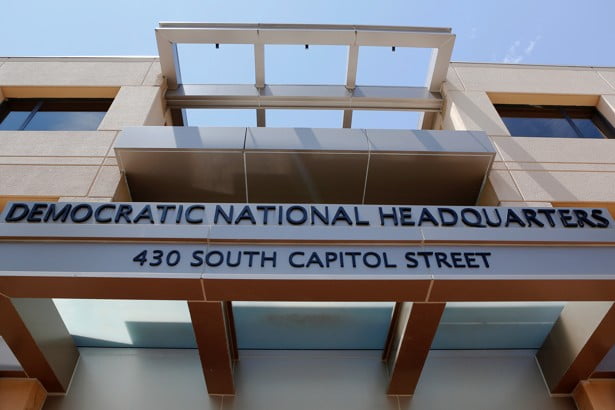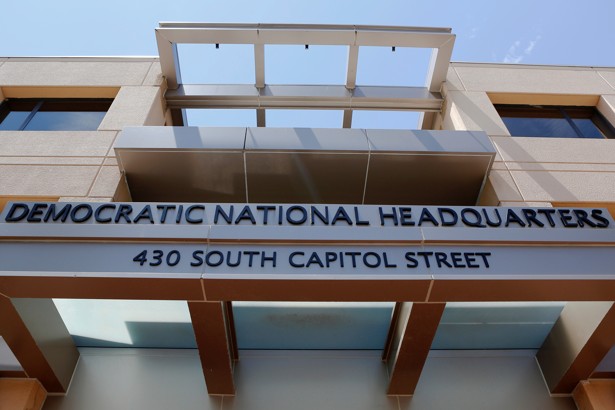

U.S. officials suspect the Russian government hacked into the Democratic Congressional Campaign Committee, the second party organization to see a recent cyber attack. In a statement Friday, the DCCC—House Democrats’ campaign arm—confirmed the breach, which was first reported by Reuters on Thursday. “Based on the information we have to date, we’ve been advised by investigators that this is similar to other recent incidents,” namely, the prior infiltration of the Democratic National Committee’s email system.
U.S. officials had strongly suspected that the Russian government was involved in the DNC hack. That intrusion led to Wikileaks releasing thousands of emails from the committee’s staff, which seemed to show them favoring Hillary Clinton, and the resignation of party chair Debbie Wasserman Schultz. But they couldn’t confirm whether the hackers intended to influence the American election. This week’s revelation is sure to fuel suspicions that they did. “It’s definitely part of a much, much broader campaign that is yet to fully be publicly revealed,” a cybersecurity expert told The Washington Post. “It’s part of a broader intelligence collection effort,” a source told Politico. “It’s maybe an attempt to harvest credentials. … It’s not an email grab like the DNC.”
Citing anonymous sources, the Post reported that there are links between the DCCC attack and the GRU, Russia’s military intelligence agency. Two sources told Reuters that the attack may have started in June. Here’s more from that report, which notes the FBI is investigating both hacks:
The newly disclosed breach at the DCCC may have been intended to gather information about donors, rather than to steal money, the sources said on Thursday.
It was not clear what data was exposed, although donors typically submit a variety of personal information including names, email addresses and credit card details when making a contribution. It was also unclear if stolen information was used to hack into other systems.
Russian government officials, meanwhile, have denied involvement in either breach. “We don’t see the point anymore in repeating yet again that this is silliness,” a Kremlin spokesman told Reuters.
[source:- The Atlantic]




